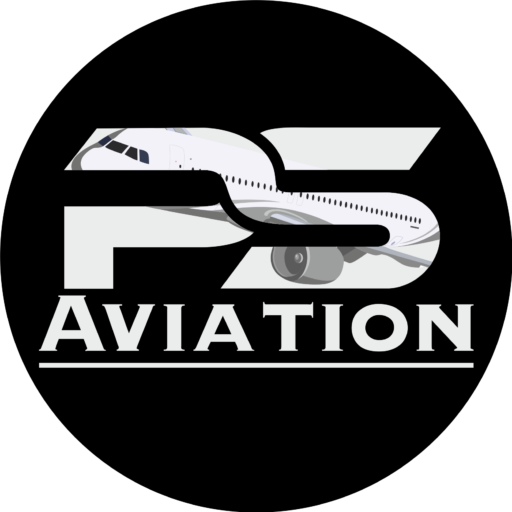In collaboration with PS Aviation
Avis, meaning bird, is the Latin origin of aviation. Modern aviation refers to either aeroplanes or helicopters as means of transportation by air. Across continents, countries and cultures, this industry helps connect people and organizations.
Several industries have grown as a result of aviation globally. As a result, it has contributed greatly to the growth of the global economy and created millions of jobs. Civil aviation and military aviation are the two main types of aviation. Aviation for aerial warfare and surveillance is different from transporting people and goods for commercial reasons.
Throughout this blog, we will discuss the differences between aviation and airport management, as well as the scope of each.
How does Aviation Management work?
Management of airlines, airports, and related businesses is the study of aviation. Studying this field gives you a great deal of insight into the aerospace industry. As well as covering basic aviation topics, the course also covers advanced topics like planning, designing, and maintaining aircraft. The aviation management programme provides individuals with the knowledge necessary to oversee various departments related to airlines and aviation management.
In addition to ground staff, fleet management, ticketing, tourism, hospitality, and in-flight services, India has the third largest civil aviation market in the world. Developing a career in this industry has great potential. Further, aviation management graduates typically earn between Rs 4 lakhs and Rs 6 lakhs per year.
Exactly what does Airport Management entail?
Airlines and airports are managed by airport management. In this field, airport strategy is set and airline commercial and operational priorities are assessed. In order to ensure the safety of flyers, flight management, and commercial operations, airport management ensures smooth operation of aviation practices.
The special airport systems are manned by aviation management officials. They are also responsible for managing traffic, handling baggage, and conducting tours. It is essential for all of these duties to be well-planned and to be prepared for any eventuality.
The key differences between aviation and airport management
Despite their similarities, airport management and aviation management differ in several important aspects. We should examine their differences in more detail.
(a) Aims:
Managing aviation services and transportation is the primary objective of aviation management. Officials in aviation management are responsible for enforcing flight safety and management principles. Their goal is to implement sustainable development in aviation while observing ethical standards.
Planning an airport development plan in phases is the primary objective of airport management. Safety, efficiency, economics, and environmental sustainability are the primary goals of the airport.
- b) Methods:
There are often complex processes involved in the aviation industry. Several specialized personnel and facilities are required for this type of research. It is essential for the aerospace industry that the aviation industry is well-functioning. The global aviation industry also uses layered security systems.
In airport management, passengers, luggage, cargo, aircraft movements, ground handling, and crew members are all involved. Departure, arrival, and transfer are systematized into three processes. The airports lease their facilities to airlines, air freight companies, and retail shops.
Plan and execute:
Airline planning includes route and service planning, fare structures, and fleet development. Air services and traffic growth are both taken into account during planning.
The planning of an airport is a systematic process that involves guidelines for ensuring an efficient development of the airport. Airport planning is primarily concerned with maximizing resource utilization. Additionally, airports develop master plans to ensure their infrastructure runs smoothly.
(d) Scope of the study:
Every day, the scope of aviation management expands. These services include ground handling, fleet management, ticketing, international tourism, and in-flight entertainment. By 2026, India’s aviation industry will see an investment of $1.83 billion for infrastructure development. As an industry that needs experienced minds and skilled professionals with the right skills and knowledge, airport management is a great career that offers a lot of growth opportunity. Pay scales in this sector are also good.
- e) Positions:
Pilots, flight attendants, air traffic controllers, and aerospace technicians are some of the jobs in aviation.
There are mainly three job roles in airport management: airport planning, passenger security, and communications. Air Traffic Control, Airport Operations Manager and Airline Relationship Manager are some of the common job roles in this sector.
- f) Requirement:
An aviation bachelor’s degree is the best course of study. Many skills are taught in a comprehensive aviation program, such as communication, security, and organizational processes.
In terms of airport management courses, BBAs, MBAs, and some short-term diplomas are the best options. Communication skills, soft skills, management processes, airport operations, and aircraft maintenance are taught in these courses.
Promising career prospects
The commercial airline market in India is expected to surpass that of China and the United States by 2030. Government initiatives are being taken to boost this industry. This is an industry that still has a lot of potential for growth. In addition to being lucrative, aviation management offers a wide variety of career opportunities.
PS Aviation Academy now accepting enrollments
You need a degree from an accredited institution, which is why PS Aviation Academy offers an aviation certification and diploma program. An equivalent degree or graduation is required for this course.
In the field of aviation, PS Aviation offers comprehensive training solutions. Technology has been used to design the courses, which offer excellent employment prospects.


